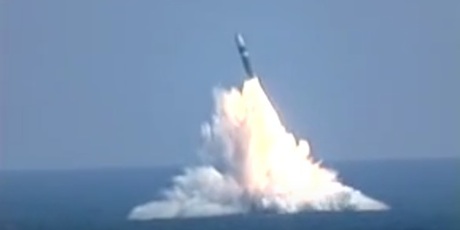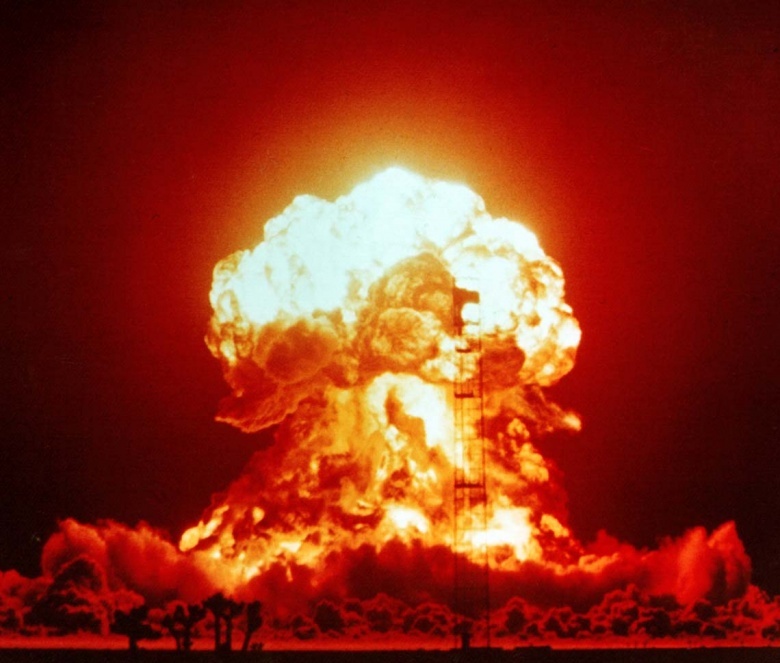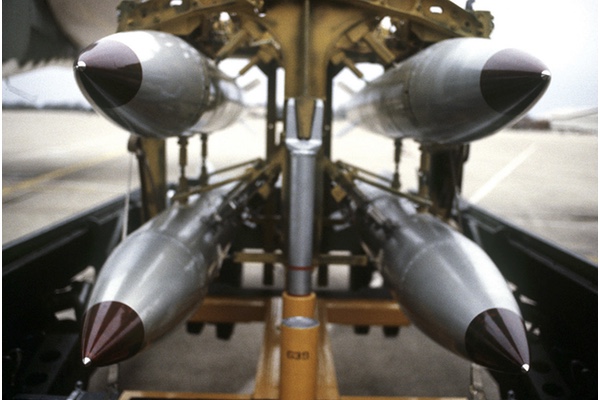The theory of nuclear deterrence represents a post facto attempt to justify the existence of nuclear weapons of mass destruction, mislead civilians and protect the morale of the military of nuclear-weapons possessing (and would-be nuclear-weapons possessing) states. Offering false promises of co-operation and collusion with other nuclear weapons states, the theory relies for its continuation on systematic distortion by the media of any nuclear-weapons-related event in such a way as to preserve the notion that nuclear weapons can be advantageous to the state or non-state actor possessing them.
The theory of nuclear deterrence is refuted by the humiliation of Khrushchev in the Cuban Missiles crisis, by the failure of the massive Soviet nuclear arsenal to prevent the break-up of the USSR and the takeover of sections of it by new hostile states and their militaries, by the failure of British nuclear weapons to deter the Argentinian attack on the Falkland islands.
The theory of nuclear deterrence has been refuted by its own originators when that has been expedient, for example for the purposes of encouraging a conventional arms build-up.
The theory of nuclear deterrence is supplemented by notions such as that “the genie cannot be put back in the bottle” and that terrorists throughout the world are seeking to acquire them so as to practice “nuclear blackmail”, contrary to findings by writers such as Robin Frost, John Mueller and others that the threat of nuclear terrorism is almost entirely mythical and that most attempts by non-state actors to acquire and/or sell nuclear materials are linked to “sting operations” or the wishful thinking of misinformed amateurs. Real terrorists tend to be military realists.
Notions of nuclear deterrence are also implicit in the French doctrine of deterrence “du faible au fort”, a doctrine underlying the whole history of French nuclear weapons possession and apparently inspiring other weaker states which, unlike the majority of the countries of the world, still want to acquire nuclear weapons. The doctrine of nuclear deterrence evidently ceased to be part of the belief system of the Swedish military when that country carried out unilateral nuclear disarmament in the 1960s, concluding that nuclear weapons possession undermines security by increasing the chances of a country becoming a nuclear target.
It is arguable that the Soviet defeat in the Cold War was assisted by the massive nuclear arms buildup of the Brezhnev period, making more plausible NATO’s counterforce scenarios of “limited nuclear war” and two-stage threats of nuclear attack.
The European Union should unreservedly support the United Nations Treaty on the Prohibition of Nuclear Weapons, in full awareness that the prospects for this treaty are complicated by the continuing hold of doctrines of nuclear deterrence on the governments and public of nuclear weapons states and other states that are not signatories. Nuclear weapons possession has been linked to notions of national sovereignty, and disarmament initiatives through the United Nations are not well placed to overcome this obstacle.
Argentina and Brazil, not at that time signatories to the Nuclear Weapons Non-Proliferation Treaty (citing national sovereignty concerns) nevertheless concluded a bilateral nuclear disarmament treaty suggesting another possible way forward for some nuclear weapons states
The European Union should attempt to set an example for the nuclear weapons states by committing itself to being nuclear-weapons free. It should do this in accordance with Article 10 of the Saintes Appeal: “Europe must become a totally nuclear-free zone, so as to contribute to total denuclearisation of the planet without waiting for similar action by other states or continents.”
Resistance to adoption of the same unilateral perspective as that of the Swedish military will inevitably encourage invocations of the “Russian threat” and, for Western Europe, also “the American threat”, as put forward by the French Communist Party in its Kanapa Report prior to its rallying to support the French force de frappe.
Pending implementation of this unilateral renunciation of a nuclear-armed European Union it may also be helpful, however, to put forward bilateral proposals along Brazilian/Argentinian lines between France and, say, North Korea, as possible step towards solving another problem of nuclear weapons proliferation that currently appears insoluble.











